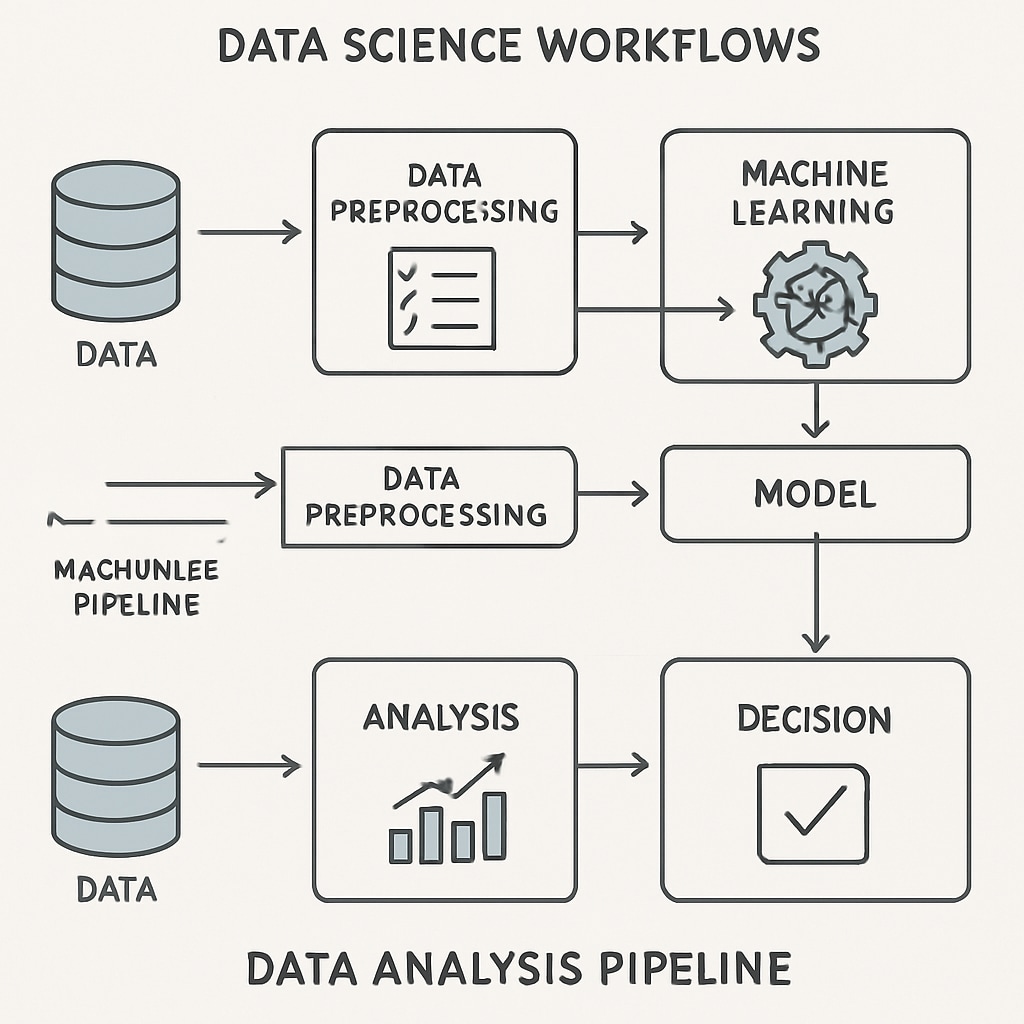In today’s digital era, cybersecurity and data science engineering are two of the most sought-after fields, offering exciting career opportunities for K12 students considering their future. Both professions are pivotal in managing and protecting the vast amounts of data generated every day, but they differ significantly in terms of skill requirements, job roles, and lifestyle. This article explores these differences to help young students make informed decisions about their career paths.
Understanding Cybersecurity and Data Science
Cybersecurity focuses on protecting systems, networks, and data from cyber threats such as hacking, malware, and phishing. Professionals in this field design security protocols, monitor systems for vulnerabilities, and respond to incidents to ensure data integrity and confidentiality.
Data science engineering, on the other hand, revolves around analyzing, interpreting, and utilizing data to drive decisions and solutions. It combines statistics, programming, and machine learning techniques to uncover patterns and insights from vast datasets.

Job Market and Career Prospects
The demand for cybersecurity professionals is growing rapidly as organizations face increasingly sophisticated cyberattacks. According to the Wikipedia entry on cybersecurity, the global cybersecurity market is expected to exceed $350 billion by 2026, creating millions of job opportunities worldwide. Common roles include security analyst, penetration tester, and network architect.
Similarly, data science engineering is among the fastest-growing professions. Companies across industries are leveraging data to gain a competitive edge, making data scientists indispensable. Roles like data analyst, machine learning engineer, and business intelligence developer are highly lucrative. According to Britannica, the field is projected to expand significantly in the coming decade.
Skills and Education Requirements
To excel in cybersecurity, students should focus on developing skills in ethical hacking, cryptography, and system administration. Familiarity with programming languages such as Python and an understanding of network protocols are essential. Certifications like Certified Ethical Hacker (CEH) or CompTIA Security+ are valuable for career advancement.
Data science engineering demands proficiency in programming languages like Python and R, as well as expertise in statistics and machine learning. Students should also learn tools like TensorFlow and Hadoop for big data processing. A strong foundation in mathematics and analytical thinking is crucial for success.

Work Environment and Lifestyle
Cybersecurity professionals often work in high-pressure environments, especially during security breaches. The job may require irregular hours and quick decision-making, making resilience and adaptability key traits.
Data scientists typically work in more structured settings, focusing on long-term projects and analytical problem-solving. While deadlines can be tight, the work environment is generally more predictable than that in cybersecurity.
Making the Right Choice
When deciding between these two fields, K12 students should consider their personal interests and strengths. Those passionate about protecting systems and fighting cybercrime may find cybersecurity fulfilling. Meanwhile, students fascinated by analyzing data and uncovering patterns might prefer data science engineering.
Both fields offer excellent career prospects and opportunities for growth, making either choice a solid foundation for a successful future in the digital era.
Readability guidance: Use short paragraphs and lists to summarize key points. Avoid overly technical jargon and ensure the content is accessible. Overuse of passive voice and long sentences has been minimized, while effective transitions like “however” and “as a result” have been incorporated.


